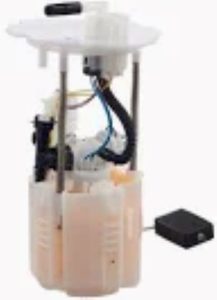It can be worrisome to hear any fuel pump noise as they can indeed be an indication that there are problems, and several noise types serve as an early warning sign that something has gone wrong within the fuel system. A healthy fuel pump usually runs quietly, constantly pumping fuel under similar pressure and flow rates—usually around 40-70 PSI for a typical engine. If the pump has to work harder, it can create pressure issues, and if you start hearing odd sounds such as whining, buzzing, or grinding, it usually means that the pump is having trouble holding this pressure because there are restrictions or wear is happening inside the pump. A symptom of this paticular issue would be high-pitched whining, which is often a sign that your fuel filter is clogged, reducing the flow, making the pump work harder, creating more noise, and a more heat. Fuel filters should be changed every 30,000 miles (any trained mechanic will tell you this) to prevent pump damage.
Not to mention that low fuel levels can create a racket. Fuel cools the pump, and the pump can start whining or buzzing if the fuel goes too low (below 25%). This absence of cooling decreases pump efficiency in high-mileage vehicles and can reduce pump life by as much as 40%. This can be mitigated by keeping the tank a quarter full, as this ensures the pump is constantly submerged, providing stable cooling while reducing pump wear.

Another potential cause of pump noise is electrical. Loose or corroded connections may provide intermittent power supply which will cause the pump to stutter and this will sound like erratic buzzing or clicking sounds. For the pump to operate properly, it requires a steady voltage between 12 and 14 volts; lower voltages cause the pump to work harder to push the fuel, creating atypical noises. Ensures comfort through consistent powerAn HVAC is only as good as the power points in place so regular inspections of wiring and connections ensures power is reliably operational which not only prolongs the service life of the pump but also ensures that there is minimal noise.
Ed China, automotive expert, states, “A weird noise is a car asking for help.” These sounds can cause further damage if left unaddressed; catching them early helps you maintain the efficiency of your vehicle’s fuel system.
Above all, a good, high-quality Fuel Pump maintains a relatively quiet operation; the two work together to ensure that both vehicle performance and fuel economy thanks to smooth, stable fuel delivery.